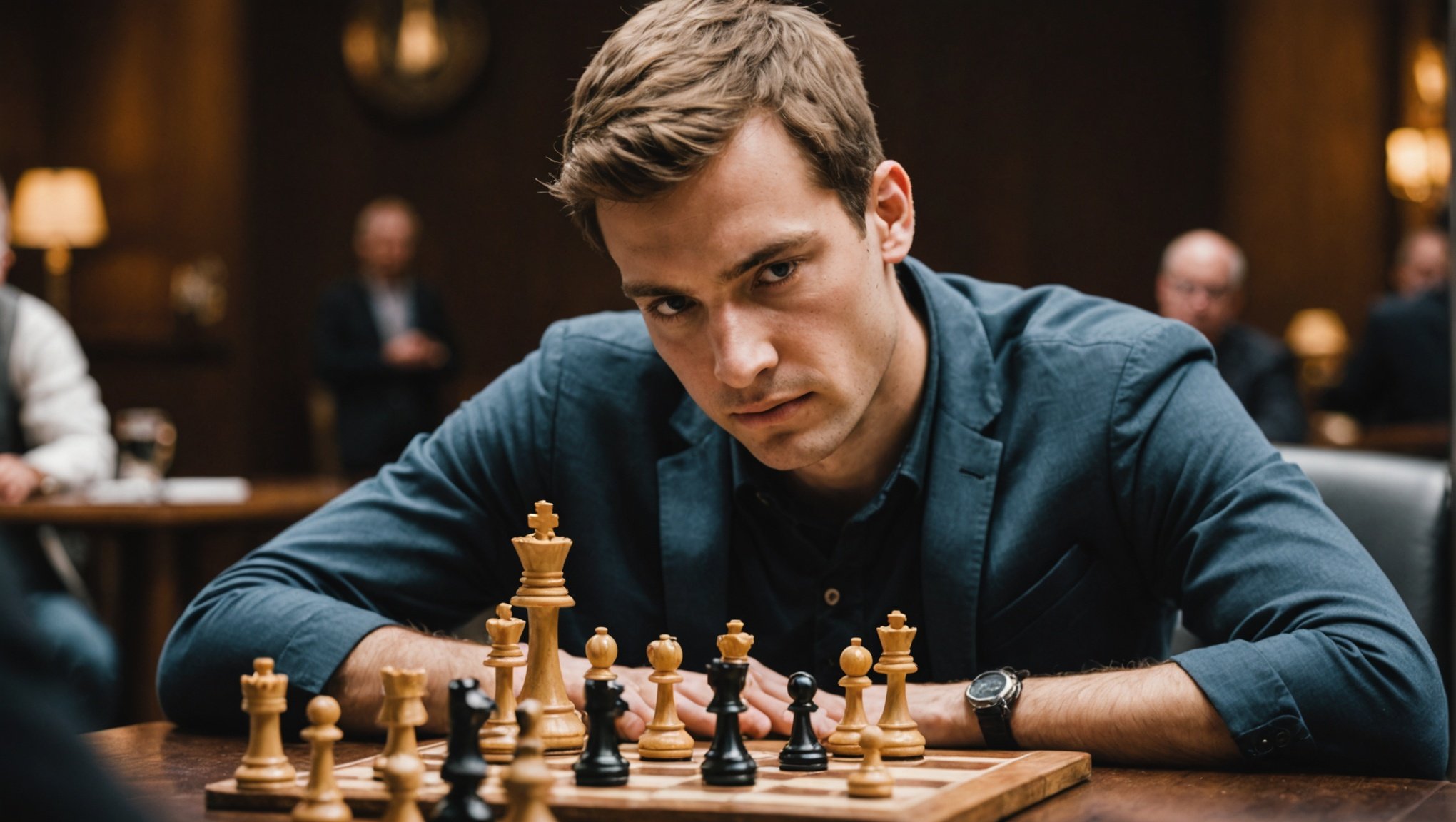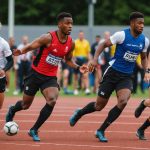Understanding Focus and Concentration in Chess
The realm of chess demands exceptional mental focus and concentration, crucial for high-level performance. In a chess context, focus refers to a player’s ability to sustain attention on the board, processing potential moves and counter-moves. Concentration, conversely, involves the depth of that sustained attention, crucial for maintaining mental clarity through extensive game durations.
Chess players operate in environments where mental clarity is pivotal. Every move necessitates sharp decision-making bolstered by honed concentration. Players must anticipate opponents’ strategies while strategising their own, requiring a seamless blend of foresight and adaptability. Distractions, therefore, pose a significant threat, detracting from focus and disrupting concentration, which can lead to erroneous moves or oversight of critical opportunities.
Have you seen this : Top Techniques to Enhance Oxygen Absorption for High-Altitude Climbers
Mental stamina in chess is predominantly tested by external and internal distractions. External factors such as noise or audience presence can interrupt a player’s train of thought, while internal distractions, including stress or fatigue, diminish their capability to maintain concentration over prolonged periods. To combat this, players often develop techniques to preserve focus, such as deep breathing exercises or mental imagery, ensuring they remain composed and alert. The ability to effectively manage and enhance concentration not only shields against distractions but also fortifies overall chess performance.
Techniques for Enhancing Focus
Improving focus is crucial for chess players seeking to enhance their game. Various concentration strategies and techniques, when incorporated into training, can significantly improve performance.
Also read : Essential Stretches Every Golfer Needs to Avoid Shoulder Injuries
Mindfulness Practices
Mindfulness is gaining popularity among chess players due to its benefits in enhancing concentration. Mindfulness involves staying present and focused on the moment, which can help players remain calm under pressure. Simple exercises, like focusing on one’s breath or practicing gratitude, can prepare the mind before a game. Several successful chess players attribute part of their success to these practices.
Visualization Techniques
Visualization is another powerful technique employed by top players. It involves imagining different game scenarios to prepare mentally before a match. By practicing visualization techniques, players can develop a deep understanding of potential strategies and outcomes. Personal anecdotes from grandmasters who regularly visualize games illustrate the power of this strategy in competitive play.
Breathing Exercises
Breathing exercises play a key role in maintaining focus and calming the mind. Controlled breathing can help players manage stress and stay concentrated throughout the game. A simple exercise involves inhaling deeply, holding the breath briefly, and then slowly exhaling. These exercises can be effortlessly integrated into pre-game routines, ensuring players enter matches composed and ready.
Incorporating these chess training techniques into regular practice can greatly benefit players aspiring to improve focus and achieve success in their matches.
Mental Exercises for Improving Concentration
Enhancing concentration through mental exercises is crucial for honing chess skills and improving overall cognitive function. These exercises are designed to sharpen focus, aid in memory retention, and refine decision-making processes.
Chess Puzzles and Problem Solving
Chess puzzles play a significant role in boosting both focus and problem-solving capabilities. They’re excellent tools for developing strategic thinking and patience. Puzzles come in various types, from simple mate-in-two problems to complex endgame studies. For competitive preparation, it’s recommended to tackle puzzles that mimic real-game scenarios, thus improving practical chess skills.
Time management is a critical factor when solving puzzles. Players are encouraged to set a specific time limit to simulate tournament conditions, enhancing their ability to remain focused under pressure. This practice sharpens decision-making and cultivates a disciplined approach to extending concentration spans, vital for concentration improvement.
Memory Improvement Techniques
Techniques such as memorizing chess positions can significantly boost memory retention. Connecting these techniques to chess strategies, players can associate specific board patterns with strategic decisions, reinforcing neural pathways. Examples of memory challenges might include recalling the positions from famous games or establishing a routine of visualizing board setups periodically, which reinforces memory.
Regular Mental Drills
Incorporating regular mental drills into training routines is essential. These can range from visualization exercises to timed tactical drills. The continuity and repetition of these activities are fundamental in achieving long-term benefits. Continuous practice not only enhances tactical awareness but also significantly improves concentration over time, crucial for peak competitive performance.
The Role of Physical Health in Focus and Concentration
Physical health significantly impacts focus and concentration, with aspects such as nutrition, exercise, and sleep playing crucial roles in mental stamina and cognitive performance.
Importance of Nutrition
Nutrition profoundly influences mental clarity and cognitive function. Certain foods, like fatty fish, nuts, and leafy greens, can enhance your focus by providing essential nutrients. Timing your meals strategically before competitive games can help maintain energy levels and concentration. Additionally, staying hydrated is essential for mental clarity, as even mild dehydration can disrupt focus and diminish cognitive functions.
Exercise and Physical Fitness
Regular exercise offers vast benefits for mental performance. Scientific studies reveal that activities like aerobic exercises, yoga, and even short walks can boost focus and concentration significantly. For chess players, integrating these exercises into daily routines can enhance mental stamina, which is crucial for prolonged strategic thinking.
Sleep and Cognitive Function
Quality sleep is directly linked to concentration levels. Establishing a healthy sleep routine, such as maintaining consistent sleep and wake times, can enhance cognitive functions and prevent sleep deprivation’s detrimental effects. Chess players experiencing sleep deprivation often face decreased performance, as it hampers their ability to think strategically and maintain focus during critical matches.
Personalising Focus Strategies for Individual Needs
When it comes to improving your game, recognising personal distractions can make a significant difference. Identifying what specifically hijacks your attention during play is crucial. Are you frequently affected by external noise, or does a wandering mind throw you off balance? Recognising these can pave the way for effective personalised strategies.
Identifying Your Distractions
To tackle unwanted distractions, start by maintaining a distraction log during games. Note down what disrupted your focus and when. Techniques such as deep breathing or mindfulness can be employed as focus techniques to minimise distractions. It’s essential to adapt these methods to fit individual preferences and playing styles.
Tailoring Techniques to Your Play Style
Chess players have diverse styles, each requiring unique approaches to maintain focus. An aggressive player might need strategies that enhance immediate strategic thinking, whereas a defensive player benefits from techniques promoting patience. Tailor these player profiles with strategies that align with your inherent play style.
The Role of Feedback and Reflection
Regular self-assessment is indispensable in refining focus techniques. Gathering insights from coaches and fellow gamers provides external perspectives, enhancing your personalised strategies. Keeping a reflective journal encourages tracking progress, evaluating which strategies work, and noting areas for improvement. Feedback loops help solidify focus strategies, leading to better gameplay.






